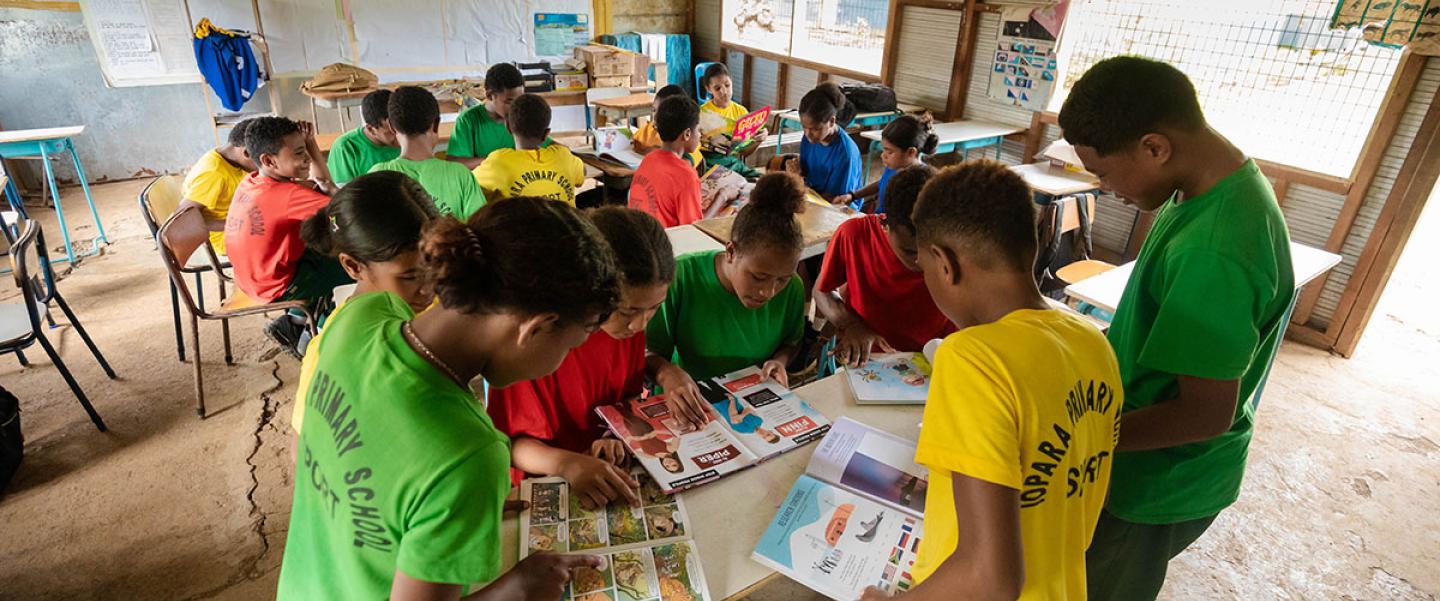HIGHLIGHTS
- Encouraging more children, including those with disabilities, to enrol and stay in school.
- Strengthening teachers’ skills, developing effective professional development, and improving teaching resources
- Advancing sustainable education policy to enhance the quality of teaching and include more children.
PROJECT
Partnership for Improving Education (PIE)
The Challenge
Papua New Guinea (PNG) has one of the youngest populations in the world, and many children there do not start or stay in school. Children who enrol in school early are more likely to continue to higher education, gain skills for employment, and have more choices in life.
High quality education for all children is a priority for the PNG Government. Engaging in and strengthening a strong, resilient early grade education system is critical for children, families, communities and the country as a whole.
The Approach
Since 2022, the Australian Government has supported Papua New Guinea’s Department of Education and the Autonomous Region of Bougainville to encourage all students—including girls, boys and children with disabilities—to start and stay in school.
The Partnerships for Improving Education (PIE) program works with school leaders, teachers, parents, government officials and communities to: encourage more children to enrol and stay in school, improve teachers’ professional development practices, and sustain education policy change to enhance teaching quality.
PIE works in Central, Enga and Sandaun provinces and the Autonomous Region of Bougainville.
The Results
Here’s how PIE has strengthened Papua New Guinea’s early grade education systems:
- Helped introduce a new Diploma in Teaching Primary (in-service) at higher education institutions to upgrade the skills of elementary teachers; funded over 600 teachers to study the diploma program.
- Provided locally contextualised learning materials and school-based training and coaching to over 6,200 teachers in literacy and maths, resulting in improved classroom practice.
- Supported development and implementation of education policies on teacher professional development, school governance, inclusive education, gender equity and social inclusion, and water sanitation and hygiene.

